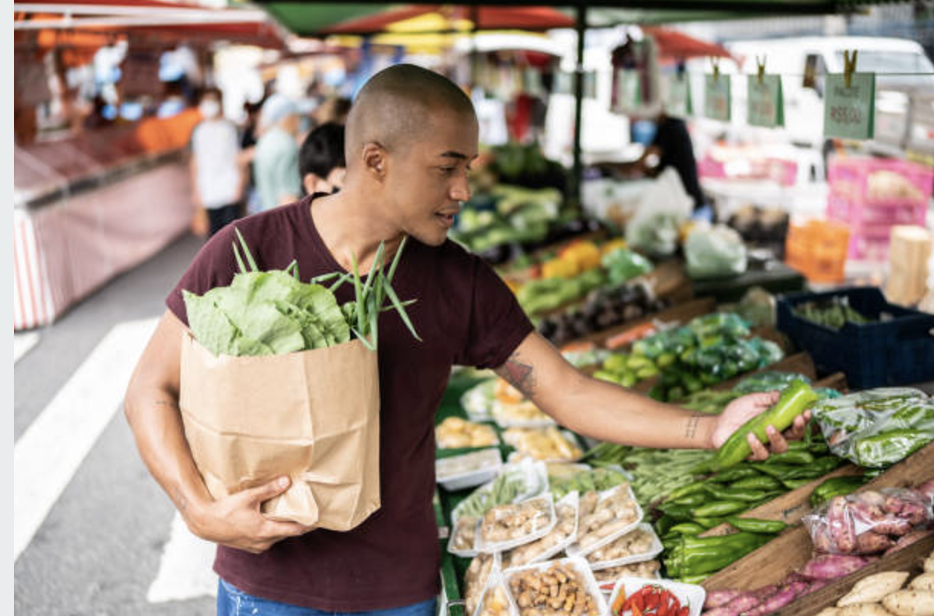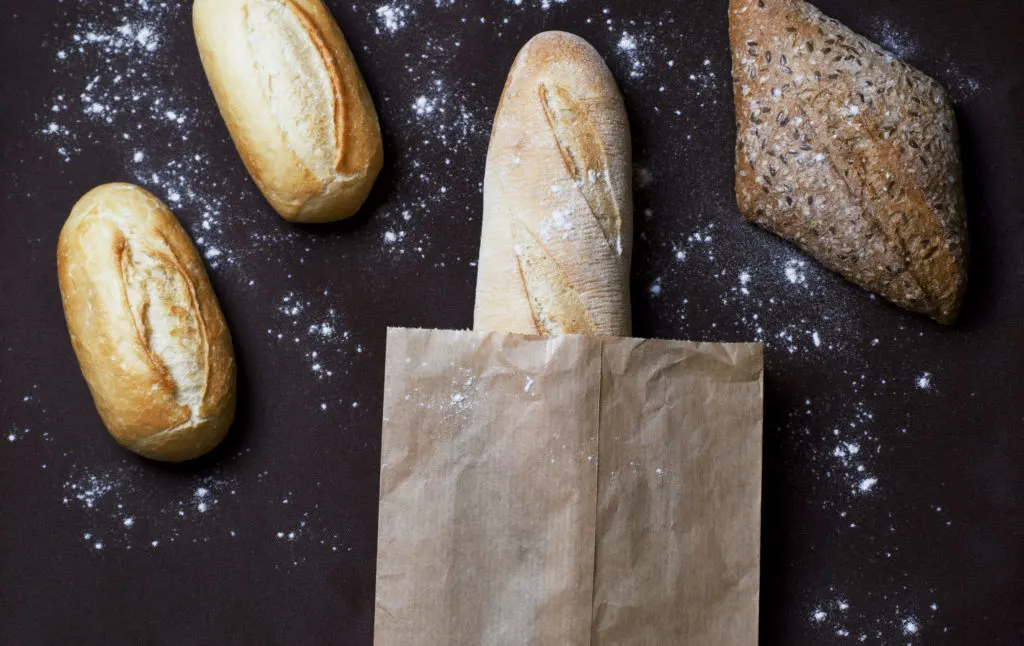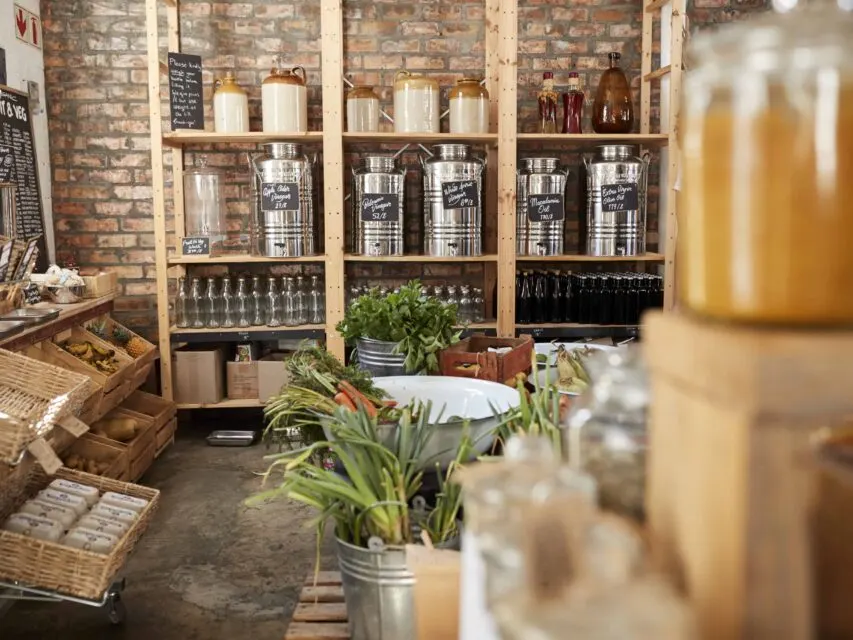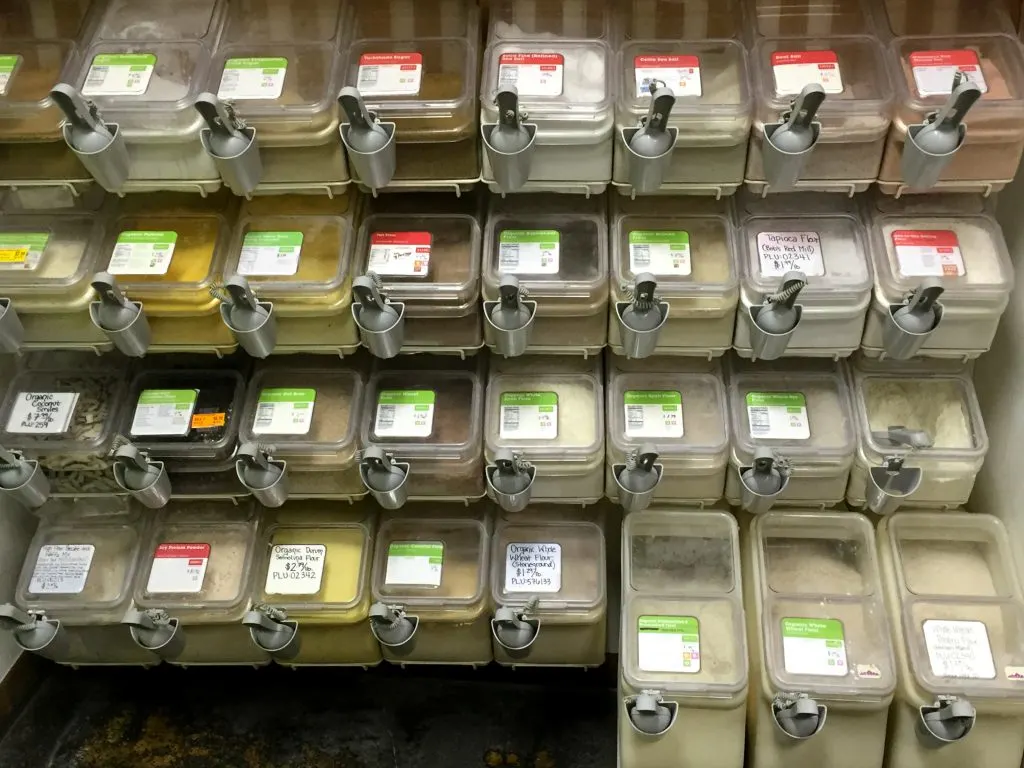Take a look in your trash can and you’ll likely find that food packaging makes up a large portion of your weekly garbage. This shouldn’t be surprising! The other day, I walked into a traditional grocery store and just about fainted when I saw some of the packaging being used for produce – cucumbers shrink-wrapped in plastic? Really?
Grocery shopping is something that many of us do on a weekly basis. This makes it one of the easiest and most accessible ways to reduce your environmental footprint!
Ready to track down some alternatives to traditional grocery stores? Let’s get started!
Where To Buy Zero Waste Groceries
Farmers Markets
My absolute favorite place to shop for groceries is the farmer’s market. It makes me feel like a crunchy, eco-Audrey Hepburn and I like that. Our Cheyenne Farmers Market may not be huge by any means, but I’ve found that it has all the produce I ever need in a given week.
Plus, the selection is always seasonal, which is something I’ve been a big fan of lately!

Find a farmer’s market in your area:
Bulk Bin Stores
While I can find most of my produce at the farmer’s market, I still have a need for pantry staples like grains, pastas, oils, and cereals. Where do you find these things package-free? Bulk bins!
Now, when I refer to the term “bulk” I’m not talking about Costco or Sam’s Club. What I really mean is any grocery location where you can buy product from a bulk bin by measuring it into your own container.
Read More: How to Shop From Bulk Bins
We buy all of our pantry staples at our food co-op. So far we’ve been able to get everything from peanut butter to protein powder! It’s actually pretty impressive.
Find a bulk bin location in your area:
Specialty Shops
Do you buy meat and cheese on the regular? Then it’s time to get creative. When we were still eating meat, we were able to convince our local Albertson’s to pack meat for us in our own glass container, but it took a bit of sweet talking. You may have better luck at a Whole Foods or Sprouts; we just don’t have one near us.

If you are fortunate enough to live in a larger city, I would seek out a local butcher or specialty cheese shop that can meet your needs. Or, if you really want to be eco-friendly, skip meat entirely. I’ve recently transitioned to a plant-based diet for this very reason. More on that later!
What to Do if You Don’t Have Access to Bulk Options?
If you live in a more remote location or just don’t have access to bulk, here are some other actions you can take you reduce your food packaging waste:
1) See if you can make it yourself.
Can’t find products like peanut butter, pesto, or chicken broth package-free? Try making it at home.
2) Look for returnable options.
More and more milk producers are offering bottle return programs for reuse. Keep an eye out!
3) Opt for the product in compostable packaging.
Just about anything that comes in a paper bag or box (think flour sacks or pasta boxes) can be composted with your food scraps.
4) Choose the product that comes in recyclable packaging.
Can’t avoid packaging? Pick the product packaged in glass over plastic, then recycle it or – better yet – reuse the container!
5) Check the plastic recycling number.
Stuck with plastic? Make sure it’s a recyclable kind. Here’s a quick guide to the number symbols and what they really mean. Still, avoid it if you can.
6) Buy in larger amounts.
This is a last resort. If you can’t satisfy your Zero Waste criteria, try to buy the product in a large pack so at the very least you get a discount and reduce the packaging you throw away. Freeze extra or pack in airtight containers if you worry about spoiling.
Now go be an eco Audrey Hepburn!


